As temperatures rise, Bhutan becomes increasingly susceptible to a multitude of climate-related threats and disasters with gendered impacts. In light of these challenges, education systems can act as a critical lever for imagining both gender-transformative and climate-informed futures. One key framework toward this is gender-transformative climate literacy (GTCL), which addresses and challenges gender inequalities and stereotypes while equipping youth with climate skills and knowledge. GTCL recognizes that climate change affects different genders differently and seeks to empower individuals to understand these disparities and take action regardless of gender roles.
GTCL is an interdisciplinary approach that sits at the intersection of climate action, gender, and education. It presents an actionable pathway to climate change and gender being embedded within the learning systems of education and skills by recognizing challenges and opportunities to strive toward the desired goal.
The case for gender-transformative climate literacy in Bhutan
Bhutan is poised to move from least-developed country (LDC) status to lower-middle-income country (LMIC) status by the end of 2023 with an ambitious plan to remain carbon neutral from its current carbon negative status. To achieve climate-conscious growth, Bhutan must enable all citizens to participate, notably women and girls. In climate-sensitive sectors like agriculture, women’s participation is at 63.2%, and women own 47.3% of land vs. 48% owned by men (4.7% is state owned). Despite this, only 73% of women have access to climate-smart agriculture initiatives and trainings vs. 83% of men. This is coupled with women’s dominant role in unpaid caregiving at 71%, which is 2.5 times more than men. These gender norms put more burden on girls and women to respond and adapt to the impacts of climate change, deepening and widening the gender disparities.
Education systems as a conduit for gender-transformative climate literacy
With 90% school enrollment and gender parity, the education system stands as a crucial conduit for infusing GTCL, with far-reaching multiplier effects on Bhutan’s journey of green growth. By instilling GTCL, schools could empower children and young adults with the right information, skills, attitudes of inquiry, and decisionmaking approaches, all of which have the potential to not only strengthen individual resilience but also have broader implications for community resilience, sustainability, and gender equity. Such initiatives could reinforce Bhutan’s standing as a global influencer in line with its commitments to international climate agreements.
As part of my ongoing research, I have identified a set of policy and practice recommendations that can help create an enabling ecosystem for GTCL.
- Update the country’s education policy to incorporate gender-transformative climate literacy. The current revision of Bhutan’s education policy presents a window of opportunity for explicit integration of GTCL into curriculum development, resource allocation, and teacher training, in order to equip students with the knowledge and skills to navigate challenges in an increasingly climate-impacted world.
- Create an ecosystem of partners to strengthen the recently launched competency-based curriculum by incorporating gender-transformative literacy strategies. A coalition of diverse partners, led by the Ministry of Education and Skills Development, should be established to carry out a comprehensively review of the curriculum in order to understand where Bhutan’s education system stands with regard to gender transformative climate literacy. The motivation for the stocktaking is to begin the co-creation and design of adaptive learning approaches and modules that impart and inculcate GTCL.
- Develop a gender-disaggregated climate literacy database to track and measure impact and refine interventions. To ensure positive learning outcomes, there must be a mechanism to measure progress and the impact of GTCL. The Ministry of Education and Skills Development, in collaboration with the National Statistical Bureau, must include variables related to gender-sensitive climate literacy in learning evaluations in schools to facilitate evidence-based decisionmaking in the policy sphere.
While GTCL is an emerging field, Bhutan is well positioned to take the lead given the country’s pro-climate leadership coupled with the ongoing revision of its education policy, innovation in teaching, and the increasing call for youth and women to step up to the climate challenge.
The Brookings Institution is committed to quality, independence, and impact.
We are supported by a diverse array of funders. In line with our values and policies, each Brookings publication represents the sole views of its author(s).


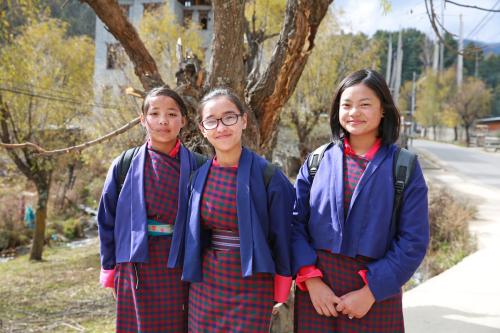
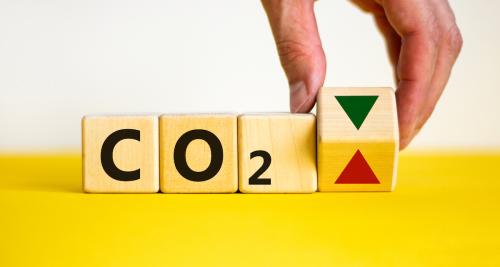
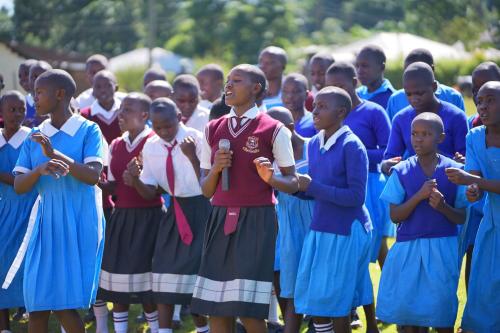
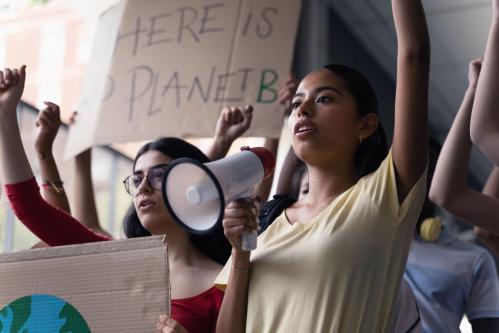
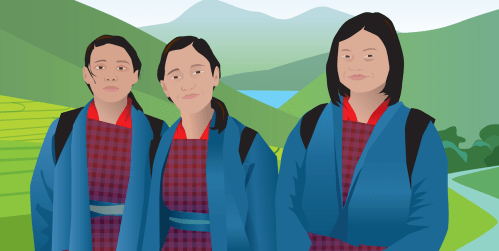

Commentary
Gender-transformative climate literacy: Raising ambition for a more resilient Bhutan
December 4, 2023